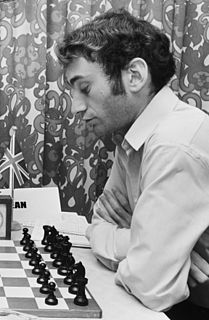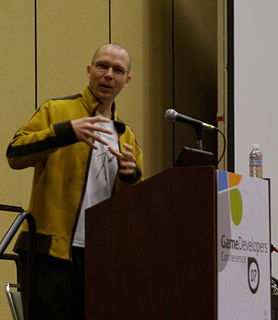A Quote by Nigel Short
Modern Chess is too much concerned with things like Pawn structure. Forget it, Checkmate ends the game
Related Quotes
If you look at the democratic process as a game of chess, there have to be many, many moves before you get to checkmate. And simply because you do not make any checkmate in three moves does not mean it's stalemate. There's a vast difference between no checkmate and stalemate. This is what the democratic process is like.
I don't think I have a favorite chess move, other than checkmate, because each move is part of a combination of other moves. Just like I don't have a favorite piece, because they all work together. I mean, I love myself; I am the king on the board, but other pieces do different things and they all work together, so it's not one particular move unless it's checkmate because usually there's an answer. You know, chess is about questions and answers.
In chess there can never be a favorite move. I can probably pinpoint in a specific game, there might be a move that was like, "Oh, that was a good move." And maybe certain moves turned the whole game around, but there's not one special move that does that, unless it's checkmate because that's when the game is over.
Fate knows all about you, it knows your fears and your weaknesses and your confidences and strengths, and it can be ready for all of them when it decides that the time is right. It can move you like a pawn in a terrible game of chess, sacrifice you for the good of others, drop you from a building you should never have been inside, give you a disease that no one has ever heard of. Luck and chance are impartial. Fate is active. It picks on people. Almost as if it thinks about things too much.
... the woman who grows up with the idea that she is simply to be an amiable animal, to be caressed and coaxed, is invariably a bitterly disappointed woman. A game of chess will cure such a conceit forever. The woman that knows the most, thinks the most, feels the most, is the most. Intellectual affection is the only lasting love. Love that has a game of chess in it can checkmate any man and solve the problem of life.
I love chess, and I didn't invent Fischerandom chess to destroy chess. I invented Fischerandom chess to keep chess going. Because I consider the old chess is dying, it really is dead. A lot of people have come up with other rules of chess-type games, with 10x8 boards, new pieces, and all kinds of things. I'm really not interested in that. I want to keep the old chess flavor. I want to keep the old chess game. But just making a change so the starting positions are mixed, so it's not degenerated down to memorisation and prearrangement like it is today.
What's interesting to me is that in terms of people who I feel are getting what my game is about - and here I'm not even talking about what the elements of the story mean, like, whatever symbolism and metaphors and things are in there. But even the structure of the game, like, there's a fundamental structure and reasons in the way things are laid out, and parts of the game that are meant to draw people's attention to certain things, regardless of what's contained in that structure. And what's interesting to me is that some people get that, and some people don't.
































